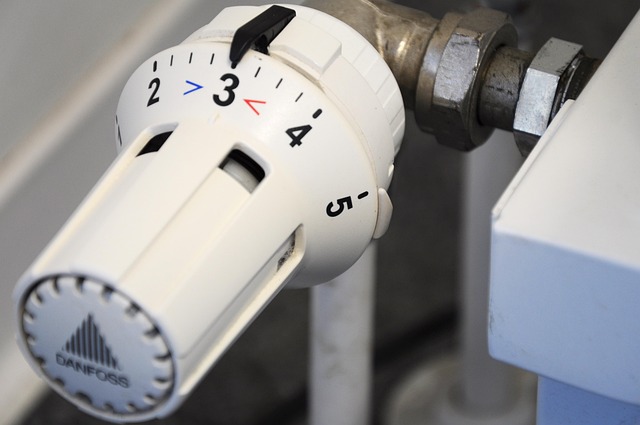Professionals are key drivers of sustainable energy solutions, leveraging specialized knowledge in renewable sources like solar, wind, and geothermal power. They navigate complex systems, optimize energy storage, and foster innovation to reduce environmental impact and carbon footprints. In Eugene, these professionals face challenges (grid integration, intermittent power) but also opportunities, driven by the city's commitment to reducing emissions. Education and training through universities and vocational schools equip experts with crucial skills. Collaboration between public and private sectors, facilitated by PPPs, accelerates adoption of clean energy technologies. Global case studies demonstrate the versatility and scalability of sustainable energy solutions, inspiring communities worldwide to embrace more livable and resilient futures.
Eugene, with its commitment to environmental stewardship, has emerged as a hub for sustainable energy system professionals. These experts play a pivotal role in shaping the city’s transition to clean and renewable energy sources. From developing efficient systems to implementing innovative technologies, their expertise is crucial in addressing climate challenges. This article explores key areas of focus, including the education and training required to cultivate the next generation of specialists, the importance of public-private partnerships, and global success stories that inspire a greener future for all.
- The Role of Professionals in Shaping Sustainable Energy Solutions
- Key Expertise Areas: From Renewable Sources to Efficient Systems
- Challenges and Opportunities in Implementing Green Energy Initiatives
- Education and Training: Nurturing the Next Generation of Experts
- Collaboration for a Greener Future: Public-Private Partnerships
- Global Impact: Case Studies of Successful Sustainable Energy Projects
The Role of Professionals in Shaping Sustainable Energy Solutions

The role of professionals in shaping sustainable energy solutions is indispensable, as they are at the forefront of developing and implementing innovative technologies. These experts, with their specialized knowledge and skills, play a pivotal part in driving the transition to cleaner and more efficient energy sources. They navigate the complex landscape of renewable energy systems, from designing efficient wind and solar power structures to optimizing energy storage mechanisms. Their expertise ensures these solutions are not just environmentally friendly but also economically viable.
Professionals in this field are fostering a metamorphosis in how we harness and consume energy. By embracing cutting-edge research and technologies, they create sustainable energy systems that reduce carbon footprints while enhancing overall efficiency. Their work is a testament to the power of human ingenuity in addressing global challenges, particularly climate change. As we navigate an ever-changing energy landscape, these professionals are revolutionizing the way we think about and utilize energy resources.
Key Expertise Areas: From Renewable Sources to Efficient Systems

Eugene’s sustainable energy system professionals bring a wealth of knowledge and expertise to the forefront of renewable energy innovation. Their key areas of focus encompass the entire spectrum of sustainable energy solutions, from harnessing power from renewable sources like solar, wind, and geothermal to designing and implementing highly efficient energy systems.
These experts specialize in integrating various clean energy technologies, optimizing energy storage, and enhancing overall system performance. By embracing cutting-edge advancements, they contribute to a greener future, reducing reliance on fossil fuels and minimizing the environmental impact of energy production.
Challenges and Opportunities in Implementing Green Energy Initiatives

Implementing green energy initiatives presents both challenges and opportunities for Eugene’s sustainable energy system professionals. One of the primary hurdles is integrating renewable sources into the existing grid infrastructure, which requires significant investment in smart grid technology and upgrades to accommodate the intermittent nature of solar and wind power. Additionally, ensuring a stable electricity supply while transitioning to cleaner energy can be complex, necessitating careful planning and resource management strategies.
However, these challenges also open up vast opportunities for innovation. Eugene’s professionals have the chance to lead the charge in developing and implementing sustainable energy solutions, contributing to both environmental preservation and economic growth. The city’s commitment to reducing carbon emissions provides a compelling backdrop for exploring new technologies such as geothermal energy, biomass power, and advanced energy storage systems. Embracing these opportunities can position Eugene as a model for successful green energy adoption, fostering collaboration and knowledge exchange within the broader sustainable energy community.
Education and Training: Nurturing the Next Generation of Experts

The journey towards a sustainable future begins with education and training, fostering the next generation of experts in sustainable energy solutions. Universities and vocational institutions play a pivotal role in equipping students with the knowledge and skills to tackle the global transition to clean and renewable energy sources. Programs focused on environmental science, engineering, and technology offer specialized curricula that delve into topics like wind and solar power, energy efficiency, and smart grid integration. These educational foundations not only impart theoretical knowledge but also encourage hands-on experience through laboratory work and field studies.
By investing in comprehensive training programs, Eugene’s sustainable energy system professionals can stay at the forefront of innovation. Continuous learning ensures they remain adept at implementing cutting-edge technologies and staying abreast of industry advancements. This dedicated educational approach paves the way for a robust and resilient energy sector, enabling our community to embrace and contribute to global sustainability goals.
Collaboration for a Greener Future: Public-Private Partnerships

In the pursuit of a greener future, collaboration between public and private sectors is proving to be a powerful driver for sustainable energy solutions in Eugene. By joining forces, these entities can pool their resources, expertise, and networks to accelerate progress towards renewable and efficient energy systems. Public-private partnerships (PPPs) facilitate innovative projects, such as the development of community solar farms or the implementation of smart grid technologies, which ultimately benefit the local community.
These collaborations foster a more sustainable environment by enabling shared knowledge, risk, and financial burdens. Private companies bring their technical expertise and market insights, while public entities contribute regulatory support and access to critical infrastructure. Together, they can navigate complex challenges and drive the adoption of clean energy practices, positioning Eugene as a leader in sustainable energy solutions.
Global Impact: Case Studies of Successful Sustainable Energy Projects

The global shift towards sustainable energy solutions has birthed numerous inspiring case studies, showcasing what’s possible when innovation meets environmental stewardship. From solar-powered villages in developing nations to wind farms integrating seamlessly into coastal landscapes, these projects demonstrate the versatility and scalability of clean energy technologies. For instance, a remote African community empowered through off-grid solar panels now enjoys year-round access to electricity for lighting, healthcare, and education, vastly improving their quality of life.
Similarly, urban areas have embraced sustainable energy initiatives, such as green roofs and efficient public transport systems, drastically reducing carbon footprints. These case studies not only highlight successful implementations but also serve as blueprints for other communities worldwide. They underscore the potential for cities to become more livable and resilient through innovative sustainable energy projects tailored to their unique contexts.














